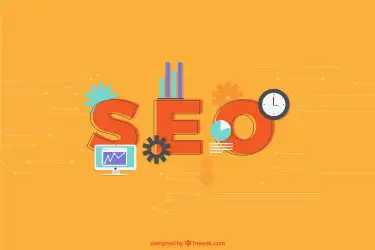Blog
Off-Page Link Building Maximizing Your Online Potential

In the world of search engine optimization (SEO), the term “off-page link building” is a crucial concept that every digital marketer should be familiar with. It refers to the practice of obtaining hyperlinks from other websites to your own, with the goal of improving your site’s search engine rankings and increasing its online visibility. In this article, we will explore the benefits and advantages of off-page link building, as well as some frequently asked questions on the topic. Off-Page Link Building: Maximizing Your Online Potential.
What are the Benefits of Off-Page Link Building?
Off-page link building offers a number of benefits for website owners. Here are some of the most significant:
- Improved search engine rankings: Search engines like Google use complex algorithms to determine the relevance and authority of a website. One of the factors they consider is the number and quality of links pointing to the site. By obtaining high-quality links from reputable sources, you can improve your site’s search engine rankings and increase its visibility to potential customers.
- Increased traffic: When other websites link to your site, they are essentially endorsing your content and vouching for its quality. This can lead to an increase in traffic to your site, as users click on the links to learn more about your products or services.
- Enhanced credibility: Links from high-authority websites can help to establish your site as a reputable and trustworthy source of information. This can enhance your credibility and help to build your brand’s reputation.
- Competitive advantage: In today’s digital landscape, it’s essential to stay ahead of the competition. Off-page link building can help you to do just that, by giving you a competitive edge in the search engine rankings and increasing your online visibility.
What are the Advantages of Off-Page Link Building?
There are many advantages to incorporating off-page link building into your SEO strategy. Here are a few:
- Cost-effective: Unlike some other forms of online marketing, off-page link building can be relatively low-cost. There are many free and low-cost tools and techniques you can use to build links, such as guest blogging, social media promotion, and directory submission.
- Scalable: Off-page link building is a scalable strategy, which means that you can start small and gradually build up your link portfolio over time. This makes it a great option for businesses of all sizes, from small startups to large enterprises.
- Long-term results: Unlike paid advertising, which stops working as soon as you stop paying, off-page link building can produce long-term results. Once you have obtained a high-quality link, it can continue to benefit your site for months or even years to come.
Why Should You Do Off-Page Link Building?
If you’re still on the fence about off-page link building, here are a few reasons why it’s worth considering:
- It’s a proven SEO strategy: Off-page link building has been a proven SEO strategy for many years. It’s a technique that has been used by some of the most successful websites on the internet, and it’s a strategy that continues to be recommended by SEO experts.
- It’s a long-term investment: Off-page link building is a long-term investment in your website’s online visibility and credibility. While it may take some time to see results, the benefits can be significant and long-lasting.
- It’s a competitive necessity: In today’s digital landscape, off-page link building is no longer optional. It’s a competitive necessity, and if you’re not doing it, your competitors probably are. By incorporating off-page link building into your SEO strategy, you can level the playing field and compete more effectively.
FAQs About Off-Page Link Building
Here are some frequently asked questions about off-page link building:
- What is the difference between on-page and off-page SEO? On-page SEO refers to the practice of optimizing individual web pages in order to improve their search engine rankings. Off-page SEO, on the other hand, refers to the practice of building links from other websites to your own.
- How do I build high-quality links? There are many ways to build high-quality links, including guest blogging, social media promotion, directory submission, and broken link building. The key is to focus on obtaining links from reputable and high-authority sources.
- How many links do I need to see results? There is no one-size-fits-all answer to this question. The number of links you need to see results will depend on a variety of factors, including the competitiveness of your industry, the quality of your content, and the authority of the websites linking to you.
- How do I track my links? There are many tools and techniques you can use to track your links, including Google Search Console, Ahrefs, and Moz. These tools can help you to monitor your link portfolio, identify new link opportunities, and track your progress over time.
Conclusion
Off-page link building is a crucial part of any effective SEO strategy. By obtaining high-quality links from reputable sources, you can improve your site’s search engine rankings, increase its traffic, and enhance its credibility. While it may take some time and effort to build a strong link portfolio, the benefits can be significant and long-lasting. So if you’re not already incorporating off-page link building into your SEO strategy, now is the time to start.
Here is a summary table of the benefits, advantages and FAQs:
|
Benefits |
Advantages |
FAQs |
|---|---|---|
|
Improved search engine rankings |
Cost-effective |
What is the difference between on-page and off-page SEO? |
|
Increased traffic |
Scalable |
How do I build high-quality links? |
|
Enhanced credibility |
Long-term results |
How many links do I need to see results? |
|
Competitive advantage |
Proven SEO strategy |
How do I track my links? |
And here’s a relevant quotation to leave you with:
“The best link building strategy is to create something worth linking to.” – Brian Dean, SEO Expert
By focusing on creating high-quality, valuable content, you can make your site a magnet for links and reap the rewards of improved search engine rankings, increased traffic, and enhanced credibility.



